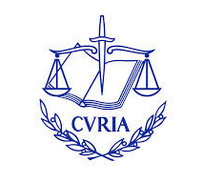Judicial Cases
C-91/05
Commission v Council, judgment of 20 May 2008
This case is connecting with the choice of the
correct legal basis for a particular act.
THE COURT ANNULS THE COUNCIL
DECISION SUPPORTING THE MORATORIUM ON SMALL ARMS AND LIGHT WEAPONS IN WEST
AFRICA
The decision, which
pursues objectives falling not only within common foreign and security policy but also Community development cooperation policy, should have been adopted
under the EC Treaty and not the EU Treaty.
In July 2002, the
Council adopted, in the framework of the Common Foreign and Security Policy(CFSP)
and on the basis of the EU Treaty, a Joint Action concerning the combating of
the proliferation of small arms and light weapons1. In order to implement that
joint action, on 2 December 2004 the Council adopted a Decision2 with a view to
a European Union contribution to the Economic Community of West African States
(ECOWAS) in the framework of the Moratorium on Small Arms and Light Weapons.
The decision was adopted on the basis of the joint action and the EU Treaty.
The Commission declared
that in its view it should not be adopted under the EU Treaty and on the basis
of the CFSP and that it fell rather under Community development cooperation
policy and, more specifically, the Cotonou Agreement3 . In that context, the
Commission stated that it was already preparing a similar financing proposal under
the Cotonou Agreement. The Commission requested the Court to annul the decision.
The Court points out that Community development cooperation policy concerns
not only the economic and social development of developing countries and the campaign
against poverty, but also the development and consolidation of democracy and
the rule of law, as well as respect for human rights and fundamental freedoms.
If a measure is to fall within development cooperation policy, it must
nevertheless contribute to the pursuit of that policy’s economic and social
development objectives.
In accordance with
Article 47 of the EU Treaty, a measure which could be adopted under the EC
Treaty cannot have the EU Treaty as a legal basis. Even if a measure
simultaneously pursues a number of objectives or has several components, without
one being incidental to the other, it cannot for that reason be adopted on the basis
of the EU Treaty if it also falls within a competence conferred by the EC
Treaty.
The decision therefore
pursues a number of objectives, falling within the CFSP and development cooperation
policy respectively, without one of those objectives being incidental to the
other.
Thus, the Court
concludes that, by adopting the contested decision on the basis of the CFSP, even
though it also falls within development cooperation policy, the Council
infringed Article 47 of the EU Treaty. Therefore, the Council decision is
annulled.
C-72/15, OJSC Rosneft Oil Company v Her Majesty’s
Treasury , judgment
of 28 March 2017
THE RESTRICTIVE
MEASURES ADOPTED BY THE COUNCIL IN RESPONSE TO THE CRISIS IN UKRAINE AGAINST CERTAIN
RUSSIAN UNDERTAKINGS, INCLUDING ROSNEFT, ARE VALID
The Court of Justice
has jurisdiction to give preliminary rulings on the legality of restrictive measures
against individuals or entities in the context of the Common Foreign and
Security policy
By a decision of 31
July 20141 and a regulation of the same date,2 the Council adopted restrictive measures
in response to actions of Russia to destabilise the situation in Ukraine. Those
measures impose restrictions on certain financial transactions and on the export
of certain sensitive goods and technologies, restrict the access of certain
Russian entities to the capital market and prohibit the provision of services
required for certain oil transactions. The objective of the measures adopted by
the Council is to increase the cost of the actions taken by Russia to undermine
the sovereignty of Ukraine. One of the companies affected by those measures is
the Russian company, Rosneft, which specialises in the oil and gas sector.
Rosneft has challenged
before the High Court of Justice (England & Wales) the validity, of the
restrictive measures imposed by the Council on it and the implementing measures
adopted by the United Kingdom that are based on the Council acts. That court’s question
to the Court of Justice is, in essence, whether the acts of the Council and the
United Kingdom are valid.
As regards the measures
adopted by the United Kingdom, the referring court asks whether, first, the
United Kingdom was entitled, in the event of an infringement of the restrictive
measures, to establish criminal penalties before the Court has clarified the
meaning of terms used by the Council. Second, it asks whether the restrictive
measures relate to the processing of payments by banks and prohibit the issuance
of Global Depositary Receipts representing shares issued before the adoption of
those measures.
The Court considers,
first, that it has jurisdiction to give preliminary rulings on the validity of
an act adopted on the basis of provisions relating to the Common Foreign and
Security Policy (CFSP), such as the Council decision. The Court specifies
however that a reference for a preliminary ruling must relate either to the monitoring
of the legality of the decision itself in the light of Article 40 TEU (an
article which governs, in essence, the relationship of the CFSP with other
Union policies) or a review of the legality of restrictive measures against natural
or legal persons. Next, the Court finds that there is nothing capable of
affecting the validity of the decision or the regulation.
The Court also holds
that the terms of the regulation do not preclude a Member State imposing criminal
penalties that are to be applied in the event of an infringement of the
provisions of the regulation. The Court holds that the restrictive measures do
not relate to the processing of payments by banks. Last, the Court holds that
the measures prohibit the issuance of Global Depositary Receipts representing
shares issued before the adoption of those measures.


Comments
Post a Comment